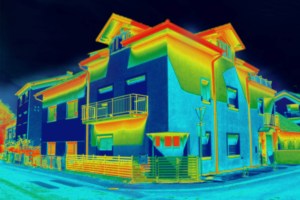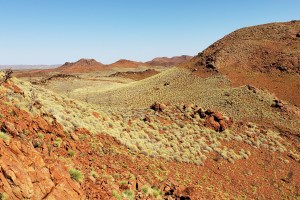Tag: Environments & Sustainability
-
Health
Antioxidant reverses most BPA-induced fertility damage in worms
Treatment with a naturally occurring antioxidant, CoQ10, restores many aspects of fertility in C. elegans worms following exposure to BPA. The findings offer a possible path toward undoing BPA-induced reproductive harms in people.

-
Science & Tech
Evaluating the hidden risks of herbicides
Research into the gut microbes of wasps shows that exposure to atrazine, a widely used herbicide, leads to changes in the gut microbiome that are passed to future generations. Findings indicate that the microbiomes of insects, including pollinators, and of humans should be considered when evaluating the biorisk of pesticides.
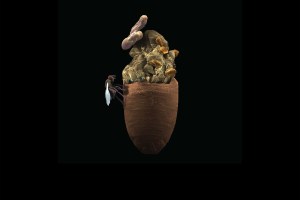
-
Campus & Community
When the trees become the teacher
The Arnold Arboretum became a hands-on classroom for high school students learning about climate change.
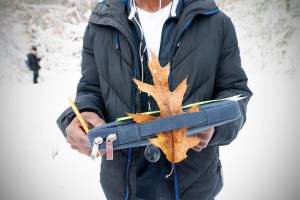
-
Science & Tech
Finding new land-management lessons in old ways
A new study overturns long-held beliefs about the role humans played in shaping the landscape pre- and post- European colonization.
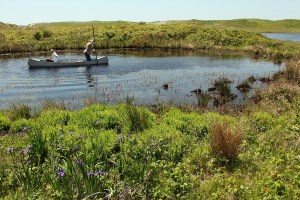
-
Nation & World
What weighed on us in 2019? ‘Climate emergency’
Harvard faculty reflect on 2019’s word of the year: “climate emergency.”
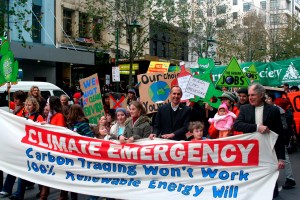
-
Campus & Community
James McCarthy, environmentalist, dead at 75
James J. McCarthy, Alexander Agassiz Professor of Biological Oceanography and director emeritus of the Museum of Comparative Zoology, died on Dec. 11 after a long battle with pulmonary fibrosis. He was 75.
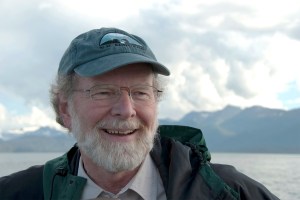
-
Campus & Community
New faculty: Martin Surbeck
A new member of the faculty of the Department of Human and Evolutionary Biology, Martin Surbeck runs one of the few bonobo research sites in the world.
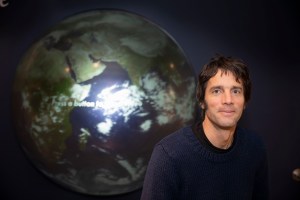
-
Campus & Community
The path to sustainable commuting
Photographers capture the Harvard community taking steps toward a more sustainable commute.
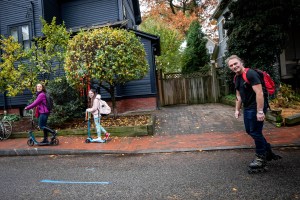
-
Science & Tech
Toll of climate change on workers
Economist Patrick Behrer is tracking the health effects of working in an extremely hot environment and the ripple effects on the economy.
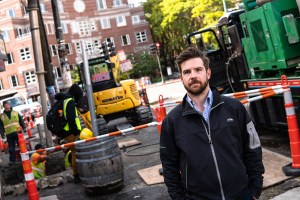
-
Campus & Community
Harvard’s Mitrovica awarded MacArthur ‘genius grant’
Jerry X. Mitrovica, the Frank Baird Jr. Professor of Science in the Department of Earth and Planetary Sciences at Harvard, was awarded a “genius grant” by the John D. and Catherine T. MacArthur Foundation.
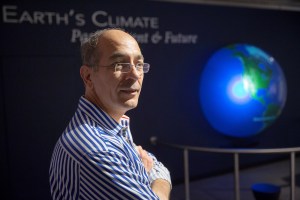
-
Campus & Community
Harvard joins Climate Action 100+
Harvard University announced that its endowment has joined Climate Action 100+, an investor-led initiative to ensure that the world’s largest corporate greenhouse gas emitters take steps to address climate change.
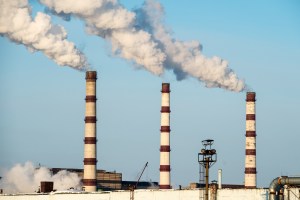
-
Campus & Community
Facing up to climate change
Harvard President Larry Bacow examines the University’s multifaceted role in the battle against climate change.
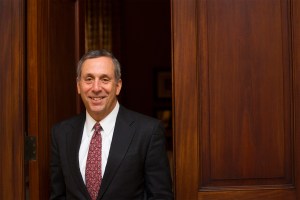
-
Science & Tech
A precise chemical fingerprint of the Amazon
A group of researchers are using a drone-based chemical monitoring system to track the health of the Amazon in the face of global climate change and human-caused deforestation and burning.
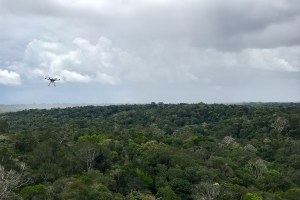
-
Science & Tech
An umbrella to combat warming
Harvard’s Keutsch Research Group is working on a controversial idea that might someday be our best hope against climate change: stratospheric aerosol injection.
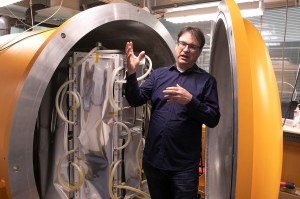
-
Science & Tech
Fighting flora with fauna
Scientists at the Arnold Arboretum are employing a species of predator moth to fight the invasive swallow-wort vine.
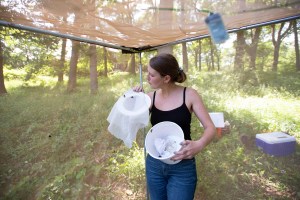
-
Nation & World
Amazon blazes could speed climate change
Harvard biologist and longtime Amazon rainforest researcher Brian Farrell discusses how the forest fires raging in Brazil are threatening the planet’s climate, and how to stop them.
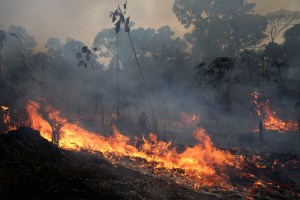
-
Science & Tech
Want to avoid climate-related disasters? Try moving
For decades, the response to flooding and hurricanes was a vow to rebuild. A.R. Siders believes the time has come to consider managed retreat, or the practice of moving communities away from disaster-prone areas to safer lands.
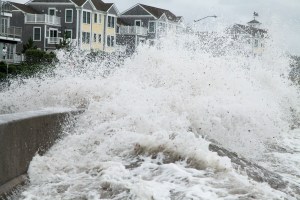
-
Science & Tech
Mercury levels in fish are on the rise
A new study concludes that while the regulation of mercury emissions have successfully reduced methylmercury levels in fish, spiking temperatures are driving those levels back up and will play a major role in the methylmercury levels of marine life in the future.
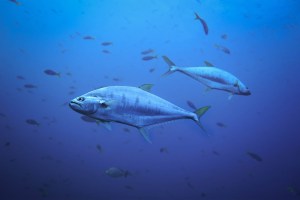
-
Science & Tech
Solving a statistical nightmare
Researchers have discovered why the North Atlantic and Northeast Pacific appeared to warm twice as much as the global average, while the Northwest Pacific cooled over several decades.

-
Science & Tech
A product idea with legs
Dakota McCoy, in collaboration with David Haig, led a group of researchers at Harvard studying the black spider and its ultrablack coat with microlenses that could lead to innovations in solar panels and sunglasses glare.
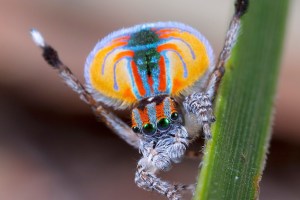
-
Health
Debunking old hypotheses
Biology Professor Cassandra G. Extavour debunks old hypotheses about form and function on insect eggs using new big-data tool
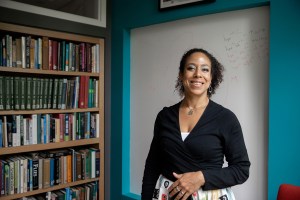
-
Science & Tech
Oceans away
A new NASA-funded program will study water worlds and environments to understand the limits of life as part of the search for life on other planets.
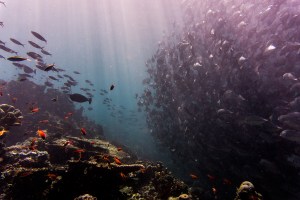
-
Science & Tech
No laughing matter
A recent study shows that nitrous-oxide emissions from thawing Alaskan permafrost are about 12 times higher than previously assumed. About a quarter of the Northern Hemisphere is covered in permafrost, which is thawing at an increasing rate. And, even though researchers are monitoring carbon dioxide and methane, no one seems to be monitoring N2O, the…
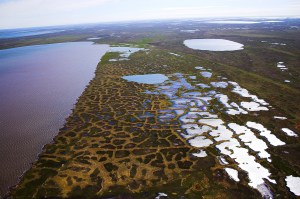
-
Science & Tech
Day of the golden jackal
The surprising success story of the golden jackal in Europe holds lessons about nature’s resilience and about how nature might respond to the evolutionary pressure exerted by humans as we change the natural landscape. The Gazette spoke with doctoral student Nathan Ranc for insight.
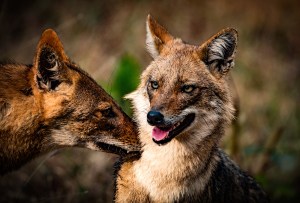
-
Science & Tech
Arboretum gets a solar boost
The Weld Hill Solar Project, currently underway, is the Arnold Arboretum’s third and largest solar project and Harvard’s most ambitious sustainability initiative to date, with nearly 1,300 solar panels powering a 45,000-square-foot science laboratory and teaching facility in Roslindale.
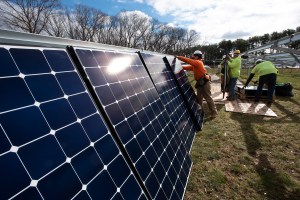
-
Science & Tech
Clearing the way for cleaner air in China
Researchers have analyzed technical and economic viability for China to move toward carbon-negative electric power generation and found that China can do so in an economically competitive way.
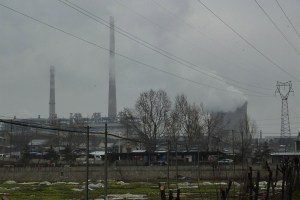
-
Science & Tech
Laying some groundwork for environmental protection
The Wyss Institute has developed a sheet pile driving robot, Romu, that works in uneven terrain to build metal walls that can act as dams, retaining walls, or building foundations.
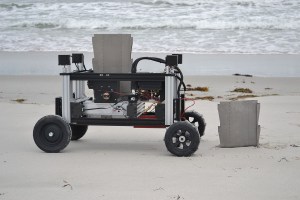
-
Science & Tech
Tackling climate change through study
Harvard’s Climate Change Solutions Fund, now in its fifth year, is awarding seven research projects $1 million in grants.
